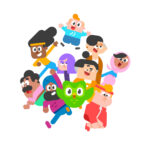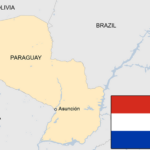Tough year. Goodbye, 2017. I hope that, as this blog entry is published, I am in a cabin with my husband and dog, per our reservation made so many, many weeks ago, and that we are having a lovely time and not thinking about the Internet at all.
The women’s march in January was wonderful. The sudden, spontaneous protests against the Muslim ban were beautiful. The resistance is glorious. But while all of this and more has somewhat slowed the fascism slowly taking over the world, including the USA, it hasn’t at all stopped it. I’ll keep fighting. But I’m also resigned that things are going to get a lot worse – and may never get better in my lifetime.
As I say goodbye to 2017, I note that I used to call myself a skeptic and assure people that this did NOT mean I wasn’t a cynic.
Then election day 2016 came in the USA. And the election, plus, in the ensuing months, watching many thousands of people cheer and rally around a sexual predator and Nazi sympathizer in the White House, and watching Nazis march in Charlottesville and be defended by the man in the Oval Office, I became a cynic. I used to say the only faith I had was in humanity. Now, as of November 2016 and all that’s happened in 2017, that faith is gone. I am a cynic. And it’s been tough to get used to. But I can’t deny that that is what I am now.
I don’t believe that truth always, or ultimately, wins. I don’t believe that love always, or ultimately, wins. I don’t believe that most people can be swayed by reason. I don’t believe most people have a sense of honor. People are not only motivated by self-interest, they are oh-so-easily manipulated regarding what is in their best interests. No, not all people. But most people. Humanity, as a whole, is oh-so-easily manipulated and will happily ignore facts if it’s inconvenient to what they want reality to be.
As politically-active and outspoken as I am, I do take mental breaks. I’m reading a lot of novels and non-fiction, mostly biographies and historical books. I’m writing a lot. And I’ve been exploring what I DO believe.
So I’m going to end 2017 with a post about what I believe.
I believe is that there are four kinds of people in the USA. I separate them into four groups based primarily on two things: how they value ALL of humanity – or don’t – and how they process facts, especially if the facts go against what they want to believe.
I admit to putting people into these categories as I get to know them.
I was going to write this in my private journal and then thought, what the heck, I’ll never run for political office, I’m sharing it.
Here goes:
There is the largest group of people, the let’s-not-think-too-much group. They are the ones that read “The Lottery” and don’t get it. They are the ones that think the “Please don’t feed the wildlife” sign does NOT apply to them: they ignore such as they position little Billy with a Cheeto so the chipmunk will come up to him so they can get the perfect photo. They avoid jury duty and then complain about the criminal justice system. They don’t think voting is a big deal and do it only for really important elections, if they do it at all, yet they may complain bitterly about the state of affairs. They are often distracted by their financial issues, but they don’t tie their financial issues – losing their rental home, being in debt, rising healthcare costs, struggling to care for a special needs child or older relative, etc. – to what their state and national legislators are doing, or not doing. They think people that love reading classics and studying to learn new things are at least a bit weird, and/or wasting their time, or even elitist. They are often suspicious of science and academics. They love regionalism and nationalism, and claim to love their mother tongue and fear that it’s disappearing, even as they make frequent grammar errors, don’ try to speak and write correctly, and think actually studying their language as a native speaker is silly. They may find some different cultures interesting, but fear “too many” foreigners or outsiders. They believe in conspiracy theories. They rarely change their minds, even in the face of facts. If they can’t understand something, they doubt the credibility or truthfulness of such. They can be kind, even generous, with no expectation of something in return, but prefer to give simple charity over undertaking or supporting complex, long-term approaches that could help in the long-term, even transform things for the better. They might cry at a news story, if they watch the news at all, and be moved so much as to write a check to a church or a nonprofit, but they won’t be moved to learn why bad things happen, not to push for the societal, legal or political change needed to stop whatever bad things are happening. They might post a few political posts to Facebook, but they prefer cat videos or dumb jokes or chain posts. They fall for email chains, “Repost this to get money from Bill Gates” hoaxes, payday loans and rent-to-own schemes. Like all humans, they have the potential to be smarter, to be wiser, to be more aware, but they don’t pursue that potential for too many and, sometimes, complex reasons to list here.
There’s the second largest group, the “know nothing” group, not because they don’t know anything, but they just don’t want to take a stand on most issues. They have read “The Lottery” and get it, but don’t want to talk about its relevance today. They don’t like being uncomfortable, so they will avoid political debates or watching an investigative documentary, even if it’s an issue they would, on a questionnaire, say they care deeply about. They are the complacent people. They rarely post anything political to their social media – they like to smugly say, “I avoid politics”, and they are able to avoid politics because so much of what happens doesn’t affect them directly, at least that they know of. To feel better, they simply skip watching or reading the news for weeks, even months, at a time. They not only don’t believe in most conspiracy theories, they don’t know about them, because they don’t have conversations nor encounter media where such would come up. They may vote in national elections, but rarely in local elections. They might like to think of themselves as socially conscious or caring, but avoid people who are expressing passionate feelings about some cause – the environment, women’s rights, etc. They might go to a demonstration, but only if it’s because it might somehow be historical or something that would be a great deal of fun to be a part of or provide lots of opportunities for selfies, like the Women’s March in 2017. But they don’t go to demonstrations to make anyone angry – they never want to be provocative. They don’t like feeling anything too deeply. They roll their eyes at blogs like this. They can be quite smug – as smug as the next group.
The third group is smaller than either of the previous two, the better-than-everyone-else group. They have read “The Lottery” and are offended by it. They believe they, and those like them – which may be people from the same ethnic group, or same culture or same economic level – are better than most other humans. They believe that they are special, they are exceptional. They believe that, overall, good things that happen to a person in life are earned by that person and always deserved, and they don’t believe prosperity happens just because of luck of birth or a chance investment. They believe the poorest people are in that state because of their lack of character and work ethic. They believe that people who lose their houses because they were wooed by a smooth-talking mortgage broker get what they deserve, that there is no such thing as a “predatory lender” – such are, in fact, smart business people, and those not-so-bright people should have read the fine print, should have done their research, etc. They actively work to exclude certain people from certain neighborhoods, certain jobs and from voting. They often delight in manipulating that first group into thinking that government is always the enemy, that privatizing public schools and national parks will make life better. They are prone to regionalism and nationalism, especially when it can be manipulated so they can get what they want politically and economically, but are happy to make a deal that hurts their region or their nation so long as it brings they themselves wealth and influence. They have infallible heroes. They bristle at phrases and concepts like social justice or gender equity. They may or may not believe in conspiracy theories, but they are happy to promote such if it serves their political or economic interests. This group can have a variety of people in it, from corporate executives to neo-Nazis to Islamic terrorists to people passionately promoting homeopathy.
And then there is the smallest group. Like all people, they make mistakes and have biases and can be grumpy. But they also think about ways to do better in life, not just for themselves but for others. They change their minds in the face of facts, even when it hurts their heart and challenges long-held beliefs. They have a moral compass but are also open to it being challenged with facts and different points of view. They want to have integrity, and mourn when they don’t, even if no one else sees their moral failing. They admire scientists, academics, writers and artists. They have heroes, but sometimes have to give up those heroes when they find out those people they admired did something egregious or aren’t nearly as great as they thought. They don’t believe all humans start off on a level playing field – and they want this to change. They are willing to give up a convenience if it means a healthier planet for future generations. They like the differences in humans regarding language, culture and history, they aren’t bothered by hearing a foreign language in their own country, and if they are privileged enough to go abroad, they revel in the different sights and sounds. They might believe a conspiracy theory, but will immediately abandon it in the face of facts. They like to read. They like to learn. They will decide at 70 to take up an entirely new activity – motorcycle riding, learning Italian, playing the piano – even if it makes absolutely no practical sense to do so. I don’t know what to call this group. But I do know that when they read “The Lottery,” they are chilled to the bone.
There can be cynics in all four groups, but there can also be optimists. Anyone from all four groups can be mild-mannered or boisterous. There can be religious people in any of these groups, as well as atheists. There can be economically poor people as well as very rich people in any of these groups. There can be very well-educated people as well as people that lack any formal education in any of these groups. There are impatient people in all of those groups. Anyone from these groups can love their children, love a particular sport and talk endlessly about some big game, and those commonalities can keep people being polite to each other, even help them work together at the same employer.
But the world is taking a dangerous lurch to the right, and I have my doubts about who will help in trying to turn the tide – and who will just go along with it all because they don’t really care enough to fight. In fact, I think it’s just a tiny minority that care. And that scares me deeply.
Which group am I in? The last group. The really, really unhappy group.
Dreading 2018. But still here. Still resisting.
A better message tomorrow to end the year.












Leave a Reply